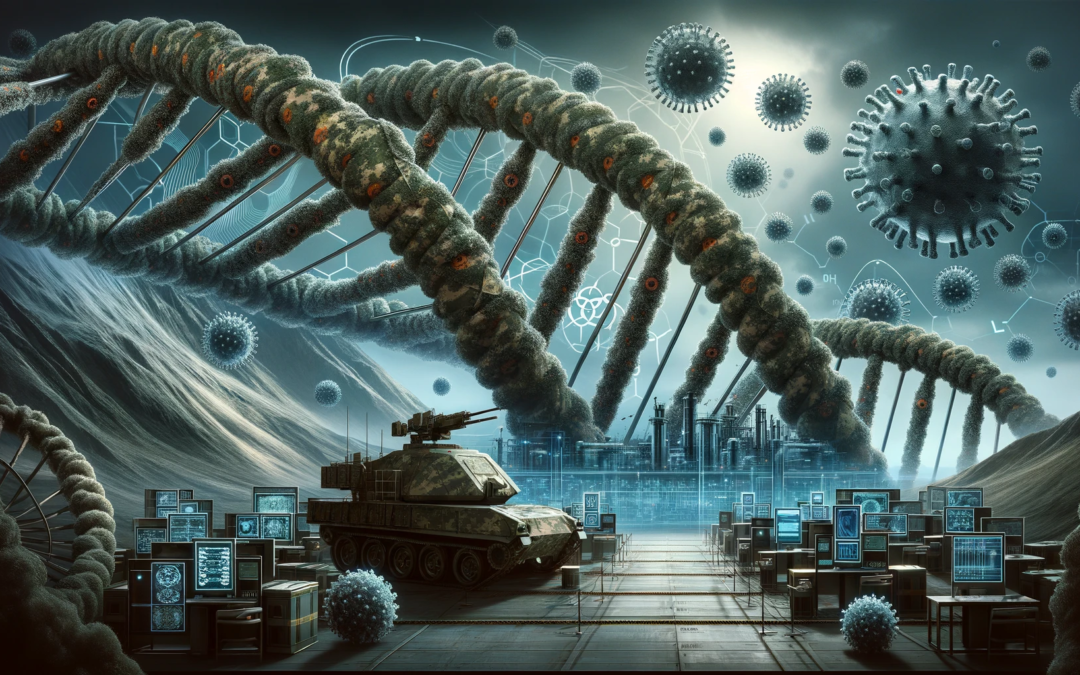In an age where the battlegrounds of war are increasingly shifting from physical territories to the realms of technology and biology, a recent defense report has posited a rather chilling forecast: the future of warfare will likely involve synthetically generated, genomically targeted plagues. This concept, emerging from the intersection of genetic engineering and military strategy, represents a paradigm shift in how nations might engage in future conflicts.
The New Arsenal: Synthetically Generated Plagues
The crux of this new form of warfare lies in the ability to create pathogens that are specifically designed to target certain genetic profiles. Imagine a virus or bacteria, engineered in a lab, that could target specific ethnic groups or even individuals based on their genomic characteristics. This capability would represent a formidable addition to any military’s arsenal, offering a means of attack that is both surreptitiously lethal and frighteningly precise.
Ethical Dilemmas and International Law
The ethical implications of such a development are profound and disturbing. The very idea of a weapon that can selectively target people based on their genetic makeup raises serious moral questions. It also poses a significant challenge to existing frameworks of international law, which are not currently equipped to address the unique issues raised by genomic warfare. The potential for misuse and the risks of unintended consequences make this a particularly precarious domain.
The Role of AI and Machine Learning
Advancements in artificial intelligence (AI) and machine learning are central to the development of genomically targeted plagues. AI’s capability to process and analyze vast amounts of genetic data makes it an invaluable tool in identifying specific genetic markers that could be targeted by these pathogens. Moreover, AI algorithms could be used to design the pathogens themselves, optimizing them for efficiency and evasiveness.
Defensive Strategies and Countermeasures
On the defensive side, nations and organizations will need to invest heavily in biosecurity measures. This includes the development of rapid detection systems for genetically engineered pathogens and the creation of effective countermeasures. Just as the offense in this arena is fueled by cutting-edge science and technology, so too must the defense be.
A Call to Action for Global Governance
This emerging threat underscores the need for robust international dialogue and cooperation. Establishing global norms and treaties to regulate the development and use of such weapons will be crucial. Moreover, there needs to be an international consensus on the ethical boundaries and legal frameworks governing this new form of warfare.
Conclusion
The report from The Debrief highlights a future where warfare transcends traditional boundaries, entering into the complex and largely uncharted territory of genetic manipulation. As humanity stands on the cusp of this new era, it is imperative that we engage in serious contemplation about the kind of future we want to create. The power to target individuals based on their genetic makeup is not just a military concern; it’s a profound ethical and existential question for all of humanity.










